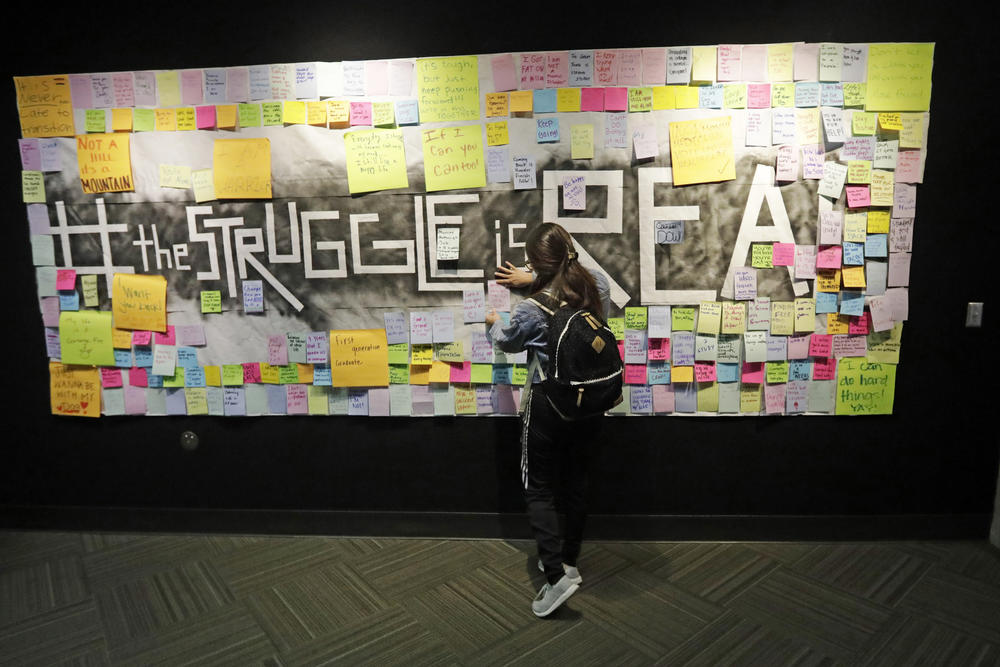
Caption
In this Nov. 14, 2019, photo, a student attaches a note to the Resilience Project board on the campus of Utah Valley University, in Orem, Utah. The purpose of the project is to let students know that it is OK to struggle.
Credit: AP Photo/Rick Bowmer

